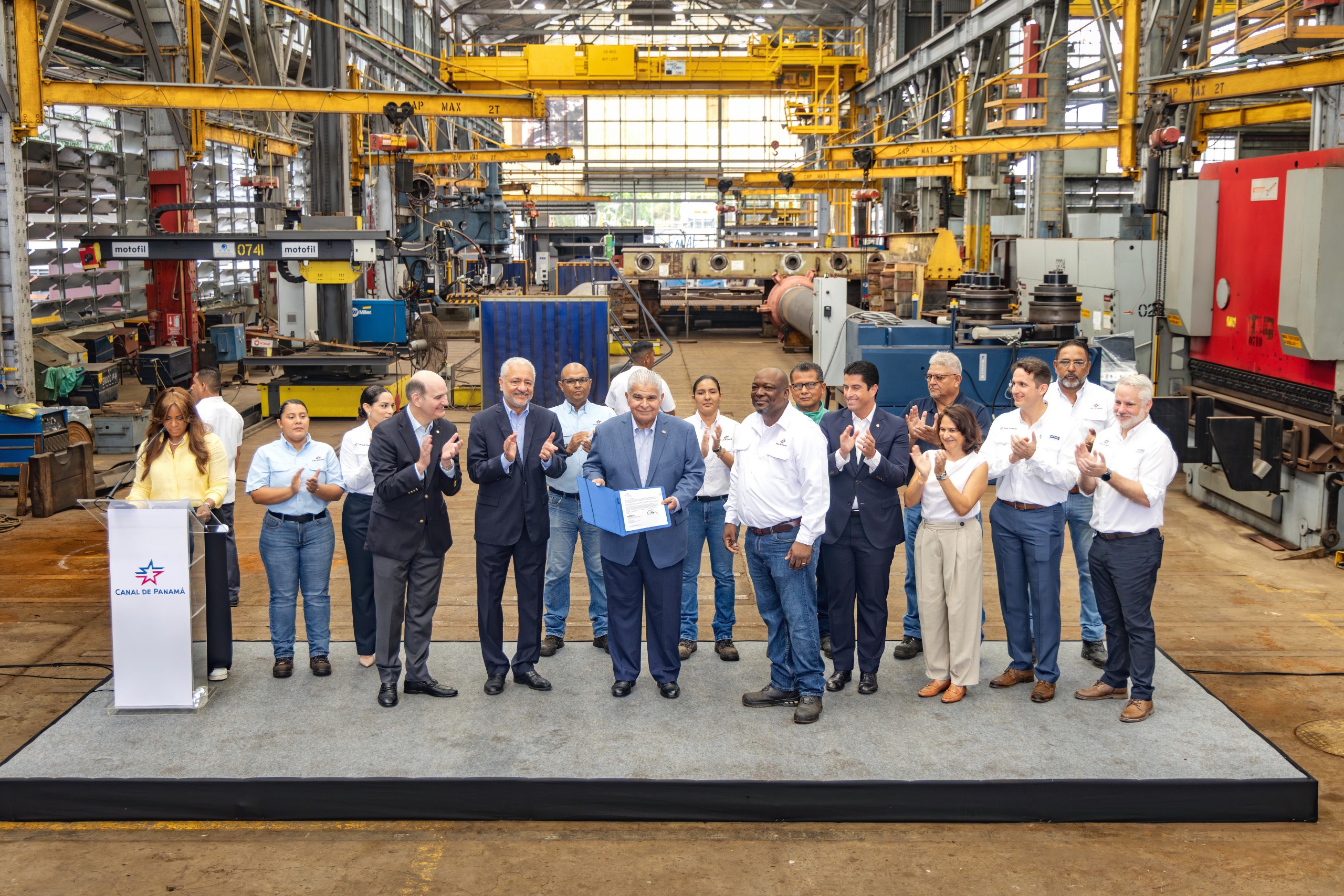Panama, February 16, 2001. Upon concluding two days of intense sessions in Panama, the Panama Canal Authority (ACP) Advisory Board expressed great satisfaction with the ACP’s excellent performance during the first year of Panamanian administration and also heard progress reports on Canal expansion studies.
“On a scale from one to ten, the Board gives the Canal performance a twelve. The achievements attained during this first year of Panamanian administration are immensely gratifying,” affirmed William O’Neil, president of the Advisory Board and secretary general of the International Maritime Organization (IMO). The Advisory Board also expressed their satisfaction with the ACP’s decision to proceed with plans to deepen the channel and Pacific entrance to 46 feet, considering it a positive first steps leading towards further Canal capacity improvements.
“We would consider it irresponsible for Panama not to develop the necessary plans to manage future traffic demands, considering international trade growth tendencies, which also translate into additional transport requirements for the international maritime community. There are a series of engineering, sociological, environmental and financial considerations which will need to be meticulously examined, such that a responsible and professional decision can be made in terms of how to act,” O’Neil continued.
Canal Administrator Alberto Aleman Zubieta said that Panama must make a decision regarding the future of the Canal. “This decision should be based on a clear vision of what is best for the country and the waterway, without failing to consider industry trends,” he said.
In its discussion with the ACP Board of Directors, the Advisory Board stressed the importance of developing an integrated maritime strategy to leverage Panama’s resources and develop the country’s potential as a maritime hub.
During the sessions, ACP officials updated Advisory Board members on the achievements of the first year of Panamanian administration. The Advisory Board also heard about the status of modernization projects and the ACP’s decision to initiate plans to deepen the navigational channel, thus increasing the Canal’s reliability by creating additional water storage capacity throughout the lake.
This is the third Canal Advisory Board meeting, following the Board’s installment in December of 1999 and a second meeting in London, in June 2000. The Advisory Board, established through the ACP Organic Law, puts the Canal Board of Directors in direct contact with clients and the maritime industry.




